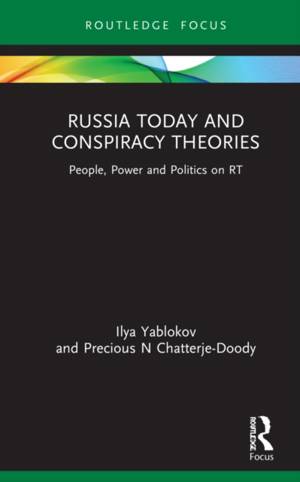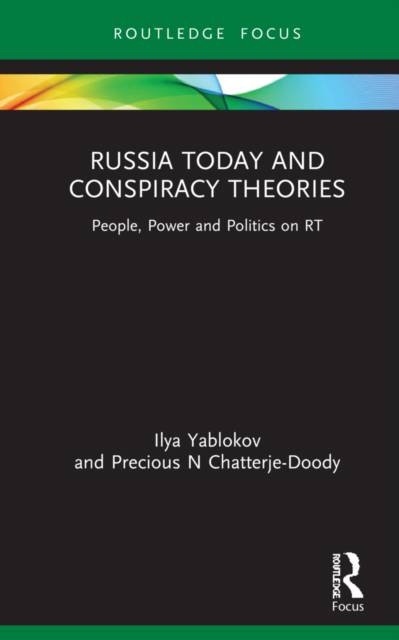
- Retrait gratuit dans votre magasin Club
- 7.000.000 titres dans notre catalogue
- Payer en toute sécurité
- Toujours un magasin près de chez vous
- Retrait gratuit dans votre magasin Club
- 7.000.0000 titres dans notre catalogue
- Payer en toute sécurité
- Toujours un magasin près de chez vous
Russia Today and Conspiracy Theories
People, Power and Politics on Rt
Ilya Yablokov, Precious N Chatterje-DoodyDescription
The Russian international media outlet Russia Today (RT) has been widely accused in the Western world of producing government propaganda and conspiracy theories. This book explores for the first time the role that conspiracy theories actually play in the network's broadcasts.
More than this, it provides the first ever study of how the Russian government engages with conspiracy theories in the international arena, with a particular focus on the use of conspiracy theories as an instrument of public diplomacy. RT was established in 2005 to represent Russia to the world, and to present a Russian perspective on global events. Whilst some of RT's more overtly conspiratorial output has been taken off the air, the network remains a source of significant concern for governments and intelligence agencies in Europe and North America. Now, more than ever, policymakers, journalists, academics, and intelligence services alike seek to understand the role RT plays in the Russian government's foreign policy agenda. The authors use RT as a case study to investigate how global communication technologies influence the development and dissemination of conspiracy theories, which are also an important component of the post-Soviet Russian intellectual landscape and Kremlin-sponsored political discourse.
This book will appeal to students and scholars of Politics and International Relations, Russian Studies, and Conspiracy Theories.
Spécifications
Parties prenantes
- Auteur(s) :
- Editeur:
Contenu
- Nombre de pages :
- 108
- Langue:
- Anglais
- Collection :
Caractéristiques
- EAN:
- 9780367224677
- Date de parution :
- 09-06-21
- Format:
- Livre relié
- Format numérique:
- Genaaid
- Dimensions :
- 137 mm x 218 mm
- Poids :
- 272 g

Les avis
Nous publions uniquement les avis qui respectent les conditions requises. Consultez nos conditions pour les avis.






